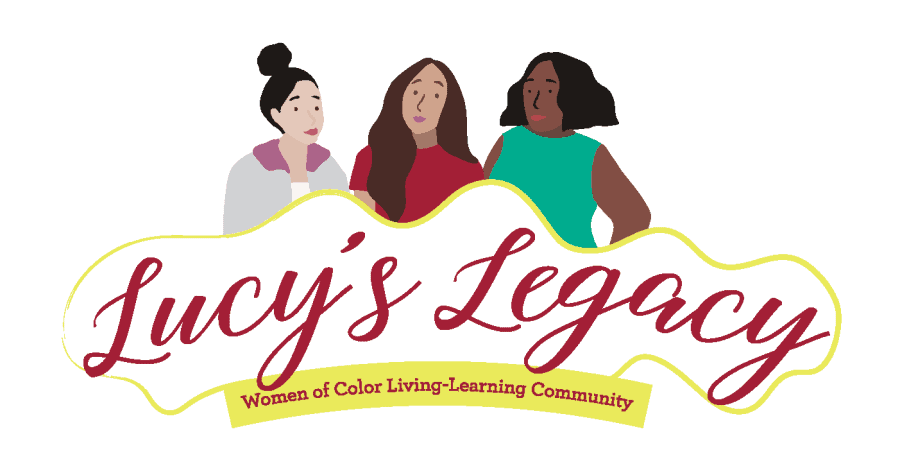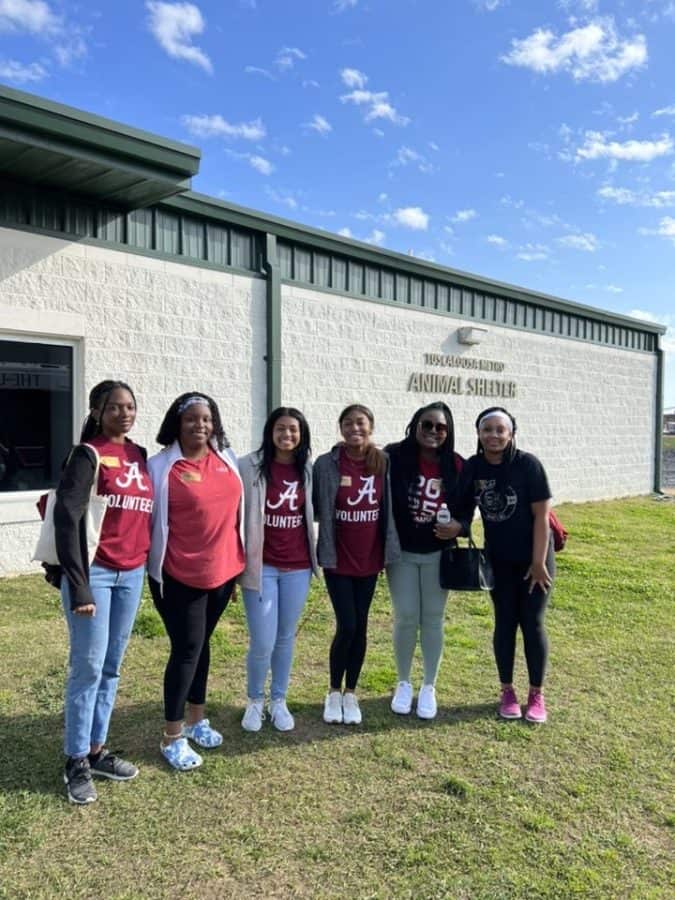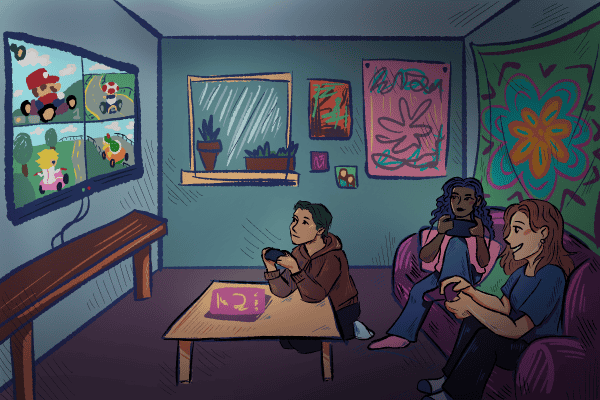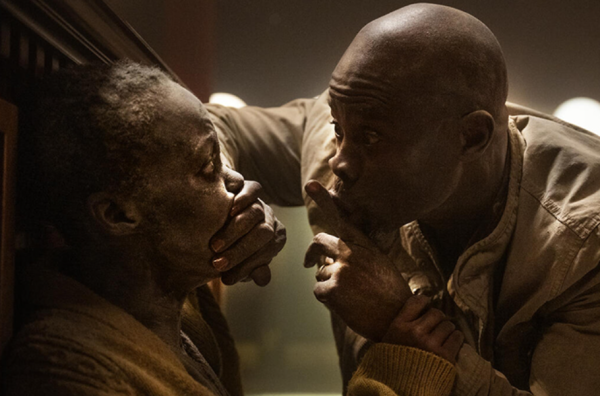Lucy’s Legacy helps first year female students of color find their ‘home away from home’
October 19, 2022
Since the fall of 2019, one floor of John England Jr. Hall has been a space where a small group of freshmen women of color have been able to forge a home away from home through Lucy’s Legacy, an academic living-learning community for women of color. Lucy’s Legacy is one of the 16 academic and shared interest living-learning communities the University offers.
Named in honor of Autherine Lucy Foster, the first Black student to attend The University of Alabama, Lucy’s Legacy supports and enriches the first-year experience of freshmen women of color through a peer group, a specialized Introduction to Women Studies course, mentoring and other resources.
In the fall of 2018, Kiara Summerville, the Capstone Center for Student Success director of student academic engagement and advocacy and Lucy’s Legacy program director, did a pilot study for a doctoral course at the University on eight first-year Black women’s experiences living in residential halls.
“I did not know that when I did it, Lucy’s Legacy would come from it. I was truly doing it for a class project to finish my doctoral credit hours,” Summerville said. “I think it’s a great [example] for undergraduate students and graduate students that these class projects you do can be used in a productive way.”
She said she learned a lot from the study, which was overall very positive, but there were some areas of concern for the women, specifically finding community in their residence halls and feeling a sense of home.
Around the same time, teams of UA staff members were working together with the common goal of bettering the campus community, which resulted in one team doing a study and putting out a call to create an initiative to serve men of color. From that call, Summerville was tasked with creating the BRIDGE program. Simultaneously, Summerville said she wanted to create something for women of color as well.
She said she spoke to her former supervisor in First Year Experience Retention and Initiatives about it, and they were supportive as Summerville established the Living Learning Community. Lucy’s Legacy and BRIDGE are no longer a part of First Year Experience; they have moved to student academic engagement and advocacy.
Summerville implemented a great deal of what she learned from the study into Lucy’s Legacy, including the need to focus on community.
She said many of the women found friendships in places outside of their residence halls but desired to feel “at home” in their dorms and create bonds that mirrored their friendships and familial bonds back home.
She recalled one student from the fall 2019 cohort of Lucy’s Legacy who one day came into her office and said, “You know, this may seem silly, but the fact that I can walk around with my hair wrapped and not have to explain to somebody why my hair is wrapped, that is really meaningful for me as a Lucy’s Legacy student.”
“I was like, ‘Well, that’s what it’s about.’ You’re supposed to feel comfortable. You’re supposed to feel you’re at home and kind of affirmed. And understanding that there are other women on campus who have these … similar experiences to you,” Summerville said.
Samantha White, a freshman majoring in news media and a current Lucy’s Legacy student, said that as a freshman, there are so many things she hasn’t experienced yet, but Lucy’s Legacy has made it easier for her.
“It made it so much easier for me like coming here and meeting people; it was like off the bat like everyone was so sweet, and [I’m] thankful for that because I’ve met so many different people that are apart of Lucy’s,” White said.
She said it’s also an added benefit that they all live together.
“A lot of times, we’ll just do stuff out of nowhere, just as a group, and it’s so easy to do that,” White said. “Like you don’t even have to think about spending time with people; stuff just happens. So that makes it fun.”
This sentiment was true from the beginning of Lucy’s Legacy, even during the pandemic.
Asia Hall, a junior majoring in kinesiology and Legacy leader, said coming into the University at the height of the pandemic and having the community of Lucy’s Legacy helped her get through it. She said there was always someone to talk to even if they couldn’t go places; she didn’t feel alone.
Lucy’s Legacy goes beyond just creating community. It also advocates for the students’ academic experiences.
During the program’s inception, Summerville worked with the Department of Gender and Race Studies and Utz McKnight, the chair of the department, to create the Intro to Women Studies course. Along with the course, Lucy’s Legacy also has a peer mentorship component that allows students to examine the different possibilities for on-campus engagement.
“I could advocate for them all day, every day and still do that, but they needed to see someone who’s doing the things on campus that they wanted to do. Who were on the e-board for their organizations, who were sorority women and who were Capstone women,” Summerville said. “They needed to see and learn from women who were in that experience that they wanted to be.”
The website of Lucy’s Legacy showcases the way the Legacy leaders, sophomore through senior women who are peer mentors, help advocate for those connections through their involvement in various Greek organizations, Army ROTC, Capstone Men and Women, Als Pals, and more.
Summerville said when she initially started Lucy’s Legacy, she thought about how the program would follow the lineage of women of color at the University, which began with Autherine Lucy Foster. However, she said over the past four years, it has become a gateway to campus for women of color to experience the full range of benefits that Lucy herself couldn’t experience.
“That means being a part of organizations that were not historically conditioned for Black students on campus. That means being able to express their race and gender identities in ways that they feel supported and celebrated and affirmed and valued on campus by nature of being a part of this community,” Summerville said. “I hope that we can continue to understand … how Dr. Foster’s legacy is being shaped through this community, and I’m hoping that this community will be a catalyst for other opportunities on campus and other places and spaces on campus for students of color and all students actually to thrive at UA.”
White said she enjoys her experience within Lucy’s Legacy, especially the Intro to Women’s Studies course the students must take as part of the program. The course, taught by Summerville, covers a variety of topics that relate to issues Black women may be facing or current events.
For White, being able to have conversations that garner a tight-knit community among women of color at the University and being able to help create relationships with the students of BRIDGE allows students to build an even greater bond with the Black community at the University.
Learning is an important part of being in Lucy’s Legacy; White and Hall agreed that they have learned a great deal from the program.
White said she realized that she wasn’t as different as she thought. She learned from conversations with the women in Lucy’s Legacy that they had common ground and common experiences within the spaces they inhabited at the University.
“It’s so hard to find Black people at a [predominantly white institution] if you don’t look and to know like there’s a group of them somewhere. And once you find that group, it branches out to so many more people … it just makes it seem like, it’s a big school, but it makes our area a little bit easier to cooperate with because we know that there’s people out there,” Hall said.
White and Hall said that it also helped to know Summerville is always there to help them.
Hall said it doesn’t matter the issue, whether it’s academic or personal, Summerville is someone you can always go to.
“Dr. Summerville is someone who is there to help us with anything we’re going through. She’s always the person that I feel like I can go to about anything and even being able to work for her is so nice for me, she’s just always there, and she makes that known to us. Like we’re her girls, and she’s got us, like a second mom,” White said.
Summerville said being a Black woman who also attended The University of Alabama helped her connect to and understand the students’ experiences on campus. She said her approach to Lucy’s Legacy was not only from the “lens of a Black woman but also a researcher and practitioner” who wanted to “improve the lives of college students at the University of Alabama.” It strengthened her practice and increased her ability to properly navigate these experiences alongside the women of Lucy’s Legacy.
Female students of color who aren’t freshmen or aren’t in the program can still make relationships with Summerville and members of Lucy’s Legacy.
Summerville said she doesn’t want any students to fall through the cracks or feel like they don’t have anyone to support them on campus. Even though they weren’t in Lucy’s Legacy during their freshman year, they can still apply to be a mentor the following academic year or develop a working relationship so she can help.
And for those who are unsure about being a part of Lucy’s Legacy in any capacity, White and Hall said they should just try it despite their worries.
“I want them to know coming in that; you have a place here at UA. UA is this big name. When you think of UA, you think of just big stuff, big football team, big campus, big SEC school, but there’s smaller things that will make you feel like you are big in the school,” Hall said.
Applications for Lucy’s Legacy’s fall 2023-24 cohort open in February 2023. For more information, students can reach out to [email protected].












